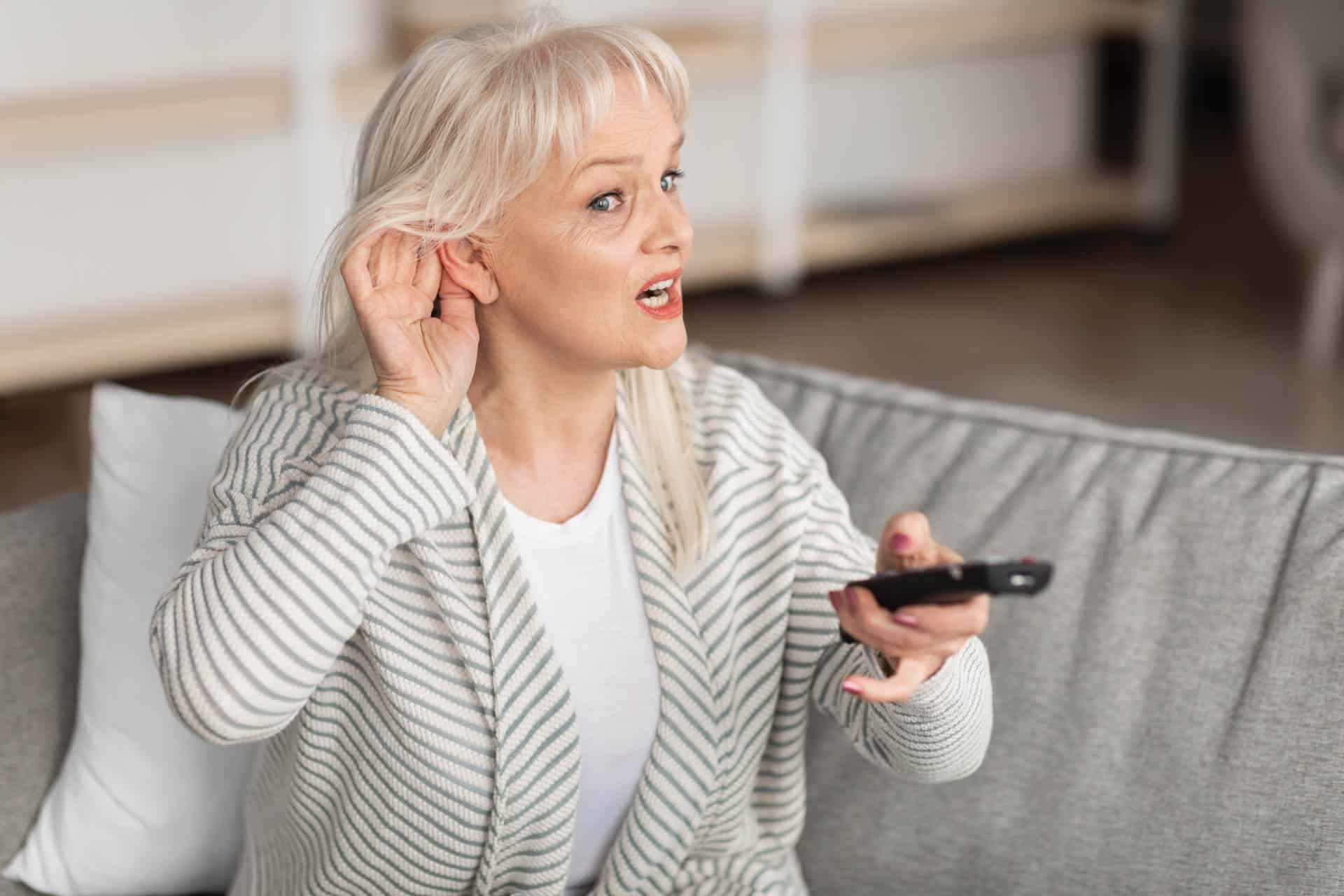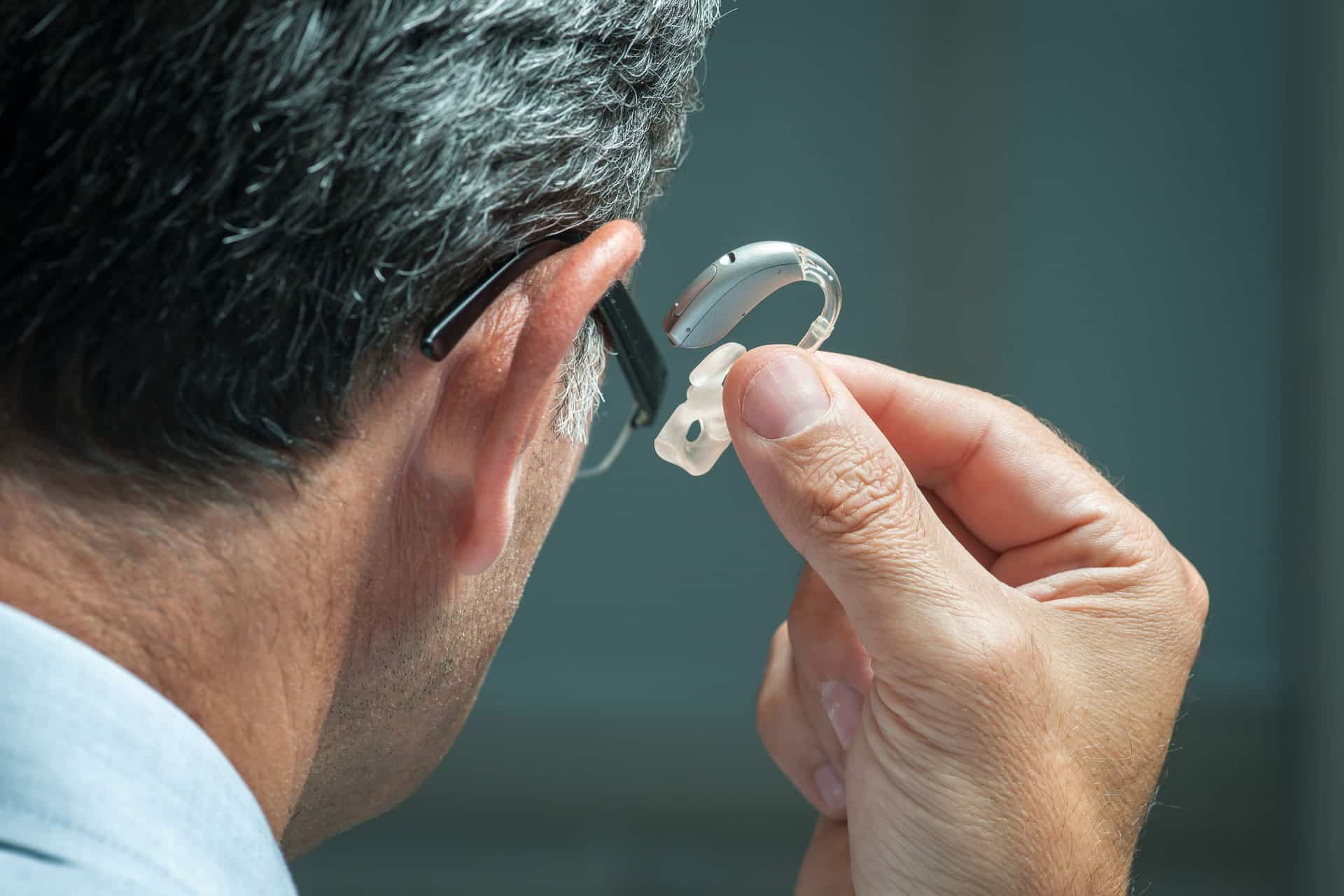Delivery in 2-3 working days
Hear better while watching TV
You know how it is: things are just getting dramatic in the movie, the hero of the story finally confesses to his beloved that he... but why doesn't he speak more clearly? He can hardly be understood from the TV chair. Then the garbage truck drives past on the street outside - and all the tension is gone.
Why can't the sound be as clear as if the performers were in the room? Why does everything sound so flat and so hard to distinguish? The days when people instinctively moved closer to the TV when it was important should really be over. And quite honestly, simply turning up the sound is no solution either. The noise is no fun, and the actors are not really easier to understand.
If you are one of the 15% of people who suffer from hearing loss, watching TV can be a real challenge. But don't worry: we have a few tips for you on how to hear better while watching TV.
Why is the sound of the TV often difficult to understand?
Hearing loss and hearing problems are not always the only factors affecting the TV experience. Modern TVs, with their slim, space-saving designs, often have small built-in speakers that can't reproduce TV sound optimally. Dialogue can sound indistinct and flat, while music and sounds can be overpowering.
But the way sound is produced for movies and TV shows has also changed. More sound effects, atmospherics and special effects are being used to create an immersive cinematic experience. The result? You have trouble understanding the dialogue.
Poor hearing while watching TV:
What problems can occur?
If you suffer from hearing loss, watching TV can present additional challenges. Here are some of the most common problems:
- Difficulty understanding dialogue in the presence of background noise
- The need to turn up the volume to hear the TV sound, which can be distracting to others in the house
- Problems distinguishing sounds and voices
Better hearing while watching TV:
These tips can help
- Choose the right volume: First of all, you should check that the correct volume is set on the TV. It makes it easier to understand and can thus also prevent hearing fatigue.
- Find the right position: In order for you to be able to hear better while watching TV, you should sit as centrally as possible and at a suitable distance from your TV. If the TV is too far away, it can quickly become too quiet. If you sit too close, the TV sound can be overwhelming.
- Improve room acoustics: With a few simple tricks, you can improve room acoustics and reduce distracting background noise. For example, close your curtains to absorb the sound. The same effect can be achieved by well-placed carpets, for example, on tiled floors.
- Select the appropriate audio settings: Some TVs offer the option to choose different modes in the audio settings, which allow you to adjust the TV sound. This includes, for example, "Clear Language".
- Use technical aids: Technical aids such as the OSKAR TV sound amplifier from faller audio can help you to hear better while watching TV. With the portable TV loudspeaker, you can take the TV sound with you to your listening position. Thanks to special speech optimization, it also filters out background noise.
- Turn on subtitles: Many TV channels or streaming providers offer subtitles. This gives you the opportunity to visually support what is being said, and thus also to understand words that you may not hear.
Better hearing while watching TV: with modern technology
There are various solutions, aids and technology for hearing impaired people that can help them to hear better while watching TV. These range from hearing aids to special hearing systems such as TV headphones and TV soundbars.
Hearing aids
TV headphones
TV sound amplifier
Proactive measures to support your hearing
If you want to hear better while watching TV, you should first check your own hearing. If you have hearing problems, you should communicate this openly and seek help.
Regular hearing tests
A regular hearing test with your doctor or hearing care professional is a good way to keep an eye on the condition of your hearing. This way, you can determine whether your hearing loss is worsening and whether your current hearing aids are still sufficient and take appropriate measures in good time to protect your hearing.
Open communication
Communicate openly about your hearing loss with your family and friends. They can help make your viewing experience more enjoyable, for example, by being considerate about volume or helping set up hearing aids.



